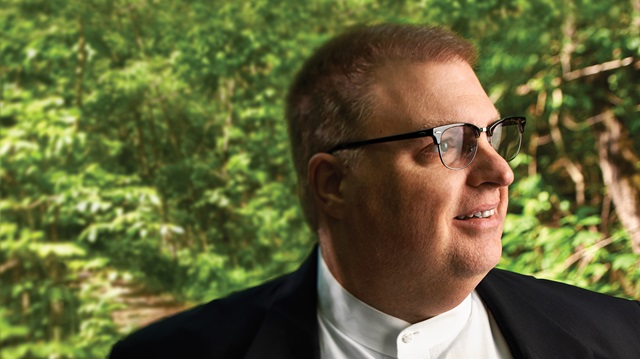Christianity Today reports – I ’ve heard that Christians are made, not born. How true that is, I don’t know. My wife, Jennifer, was born on a Thursday and baptized by her father, a Lutheran pastor, the following Sunday. She may not have been born a Christian, but she is about as close as one can get. For me, the path to Christian faith has been far rockier.
Both my parents were raised as Lutherans. But my mother never had much use for religion. And my father, who had taken religion seriously, lost his faith in God’s goodness in the jungles of South Vietnam.
My father hoped to make a career in the Army. So we moved a lot, five times during my first ten years. When he finally resigned his commission in 1977, we settled in a Southern California suburb.
It wasn’t home. It couldn’t be. And by that time, I had been on the receiving end of my father’s intense but sporadic violence for some years. I learned to both fear and hate him, and almost all authority. School quickly became unsafe as well: I was bullied, terrorized, and abused regularly, not just by classmates, but also by my fifth-grade teacher. There was no one to trust. I was frightened, incredibly alone, and increasingly angry.
But whatever I lacked in religious guidance, I never blamed God. I didn’t know how. Indeed, there was an intense God-hunger in my soul. I may not have known where I was going or even how to start, but I knew there was something out there worth finding.
Meeting God as a Muslim
At age 14, I launched my quest for God, attending a fairly generic dispensationalist church. It proved incapable of asking difficult questions about life’s meaning in the face of suffering, much less answering them. The people were kind, but I needed to know more than they could tell me. By the time I graduated from high school, I found myself wondering: Would anyone ever love and value me? Would I ever belong anywhere?
There was a miserable stint in the Army, mercifully shortened by a psychiatrist who thought I had no business being a soldier. There were a couple of romantic relationships with married women. Casting about for something to do, I eventually settled on studying journalism at San Francisco State University.
That’s where I found Islam. A friend introduced me to the Qur’an, and I was entranced by its words, which speak of a God who cares a great deal about the men and women he created. But it was also the people: the Palestinian and African American Muslims who first taught me what it meant to surrender. They welcomed me as no one else had before.
Some people look to faith for ideas of right and wrong, or some understanding of good and evil, or a set of principles with which to order the world. Not me. What I sought, what I ached for, was meaning and belonging. And Islam gave me both.
There is much I keep from that time as a Muslim. The Qur’an teaches that God gives freely to all creation, believers and unbelievers alike, and it is best to respond with thankfulness and wonder. And Muslims in America live their faith with tremendous courage in the face of a frequently hostile culture.
But Islam also provided religious and political fuel for my anger. At one mosque where I worshiped during the early 1990s, I fell in with a group of jihadis. We studied and discussed the texts of revolutionary Islam, mostly the writings of Egyptian intellectual Sayyid Qutb and Pakistani journalist Abul A’la Maududi. One brother went to fight in Bosnia, and I wanted to join him … read more
Source : Christianity Today



